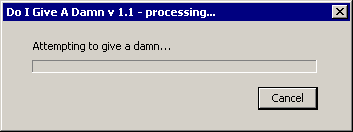It suddenly occurred to me that we were paying more for our property taxes than our home is worth - DOH! After some careful inquiry, this is what I found out:
Under Prop 8, California property taxes must not be imposed on more than the fair market value of a residence as of January 1st, each year. You may use the closing sales price of homes similar to your own to prove this (i.e. Comparable Sales). Ideally, these homes will be in close proximity and have similar characteristics to your home (e.g. square feet, lot size, view, bedrooms etc.).
If you can demonstrate that Comparable Sales of homes like yours, sold for less than your home’s Assessed value, then your property tax assessed value should be reduced along with the related property tax costs. You may only use Comparables Sales dating March 31st, and prior to support your appeal. If there are material differences between your home and the Comparable Sales, you can make reasonable adjustments to the sales price of each Comparable Sale. For example, if a similar home to yours was sold with a pool, a downward adjustment to the Comparable Sale would be an appropriate adjustment if your home does not have a pool.
Deadline
Homeowners in California only have until either September 15th or November 30th, 2008 to request a formal property tax appeal and dates vary by County when informal property tax appeals are due. The confusion about appeal dates stems from the differences between the formal and informal process for a property tax reduction. The informal appeal is handled through each County’s Assessor’s office. This is the most expeditious means of appealing your property’s assessed value. Generally, Counties have an informal property tax appeal form used to prepare a temporary reduction in value request. Generally, you supplement this form with Comparable Sales from your neighborhood that will be evaluated by the Assessor. If a reduction is granted, then you’ll get a refund or a smaller property tax bill.
Since the process is informal, the published dates are not locked in stone and vary considerably by County. While informal appeals should be your first step, you should also file a formal property tax appeal if the Assessor’s response will not be known before the formal appeal deadline. Unless you file a formal appeal, then you’ll have to accept the Assessor’s opinion. With a formal appeal Request for Changed Assessment”, you’ll have the advantage of an independent review by either a Hearing Officer or the Assessment Appeals Board. Generally, it makes sense to request a Hearing Officer and not go through the formalities of the Assessment Appeals Board for a residential property appeal.
The disadvantage of a formal appeal is that it will take longer, estimated to be at least 6 to 9 months. However, you don’t have to go on to the formal appeal if you can reach agreement with the Assessor before the hearing. If you reach agreement with the Assessor or if you go to the Hearing and a lower value is granted, you will get a refund with interest. Since all formal appeals must be filed by September 15th or November 30th, 2008, you should consider filing both appeals at the same time.
Property Tax Valuation Workbook
Although a Property Tax Valuation Workbook is not necessary to file a Property Tax Appeal, using the industry standard method for supporting an appeal will put you in a much stronger position with the Property Tax Assessor in an Informal property tax appeal or with a Hearing Officer in a Formal property tax appeal.
The goal of a Property Tax Valuation Workbook is to automate the collection, computation and presentation of your property tax appeal in an industry standard format. Although the Property Tax Assessor enjoys an advantage in valuation expertise, no one knows your home and your neighborhood better than you do. Automating the workbook presentation format and computations, helps neutralize the Assessor’s valuation advantage, while allowing you to focus on your strength, hands on local knowledge! Using Comparable Sales, photos of your property and providing narrative explanations puts you in position to make a compelling case for a property tax reduction.
Market Value Methodology
The basic steps in developing your property tax appeal include:
1. Comparable Sales from the correct time frame—Gather Comparable Sales to your property from for the correct time frame.
2. Select your (3) three best comps--Review your Comparable Sales and rank them in the most appropriate and beneficial order 1, 2, 3.
3. Organize Comparables into Three Columns--Organize the Comparable Sales in the format traditionally used to support a Comparable Sales Market Value calculation. The three 3. Comparable Sales should be presented in three columns with specific information summarized about each property (e.g. square feet).
4. Calculate the Average Comparable Sales Price--Averaging the closing sales price of these three Comparable Sales provides a good indication of what your home’s Market Value is for property tax purposes.
5. Lowering the Average Comparable Sales Price--You can lower the average value of the three comparable sales by identifying features each of these homes have that your home does not have. For example, if a Comparable Sale home has a special view and your home does not, you should enter a downward adjustment to the Comparable Sale price of that property to appropriately adjust the value of the Comparable Sale.
6. Since Prop 8 requires the Tax Assessor to reduce your property taxes to Market Value, you can reduce your property taxes by obtaining and adjusting Comparable Sales in your neighborhood for the right time frame. Present this material in the industry standard format supplemented with information about your property and the Comparable Sales along with photo’s and you’ll have a compelling case for property tax reduction.
Sunday, November 16, 2008
Subscribe to:
Post Comments (Atom)




No comments:
Post a Comment